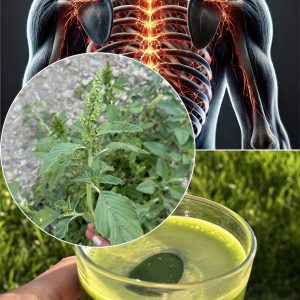The vegetable heralded for its remarkable ability to regulate blood sugar levels, making it a formidable ally in the battle against diabetes, is none other than the humble okra. Okra, also known as “ladies’ fingers” due to its slender, finger-like shape, has long been celebrated for its health benefits, which are particularly relevant in the context of diabetes management.
The Power of Okra in Diabetes Management
Okra belongs to the mallow family and is a common ingredient in various cuisines around the world, especially in the southern United States, parts of Africa, and the Middle East. Its unique texture and mild taste make it a versatile vegetable that can be prepared in numerous ways. However, it’s the health benefits, especially for those managing diabetes, that are truly impressive.
Blood Sugar Regulation
Okra contains a type of soluble fiber known as mucilage, which can help in regulating blood sugar levels. When consumed, this fiber slows down the digestion process, reducing the rate at which sugar is absorbed in the bloodstream. This slow absorption is crucial for individuals with diabetes, as it helps prevent spikes in blood sugar levels, which can be dangerous.
Rich in Nutrients
Apart from its ability to regulate blood sugar, okra is rich in several important nutrients. It’s a great source of vitamins A and C, which are powerful antioxidants. Antioxidants help the body fight off free radicals, reducing oxidative stress and lowering the risk of chronic diseases such as diabetes. Okra also provides vitamin K and magnesium, essential for blood clotting and bone health, respectively.
Low Glycemic Index
Okra has a low glycemic index (GI), which means it has a minimal impact on blood sugar levels. Foods with a low GI are beneficial for individuals with diabetes because they provide a slow release of sugar into the bloodstream, preventing sudden spikes.
Anti-Diabetic Properties
Research has suggested that okra may have anti-diabetic properties. Some studies have shown that consuming okra can help improve insulin sensitivity and reduce blood sugar levels in people with diabetes. These effects are attributed to the fiber content and other compounds found in okra, such as flavonoids and antioxidants.
Incorporating Okra into Your Diet
To reap the benefits of okra for diabetes management, it can be incorporated into the diet in several ways. Okra can be added to soups, stews, salads, and stir-fries. It can also be roasted, pickled, or eaten raw. When cooking okra, it’s advisable to minimize the cooking time to preserve its nutrients and prevent the loss of its blood sugar-regulating properties.





